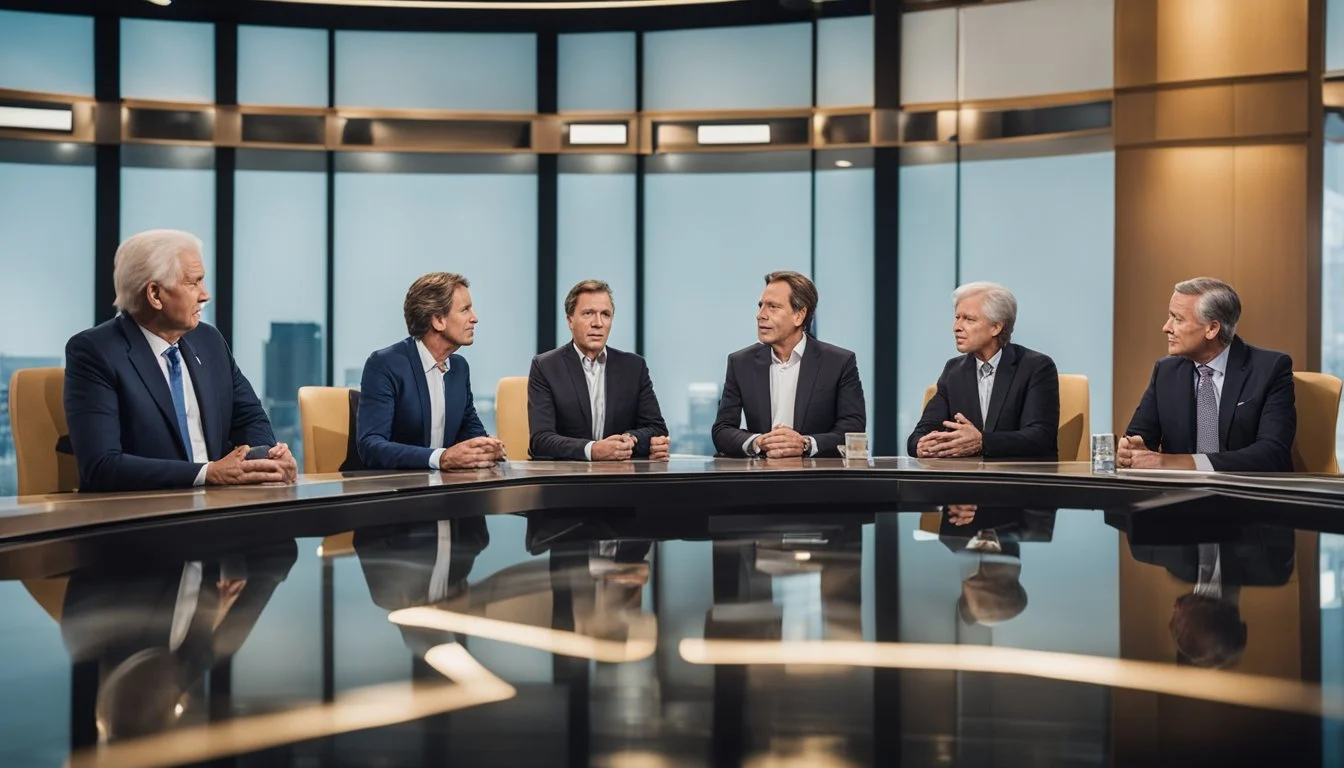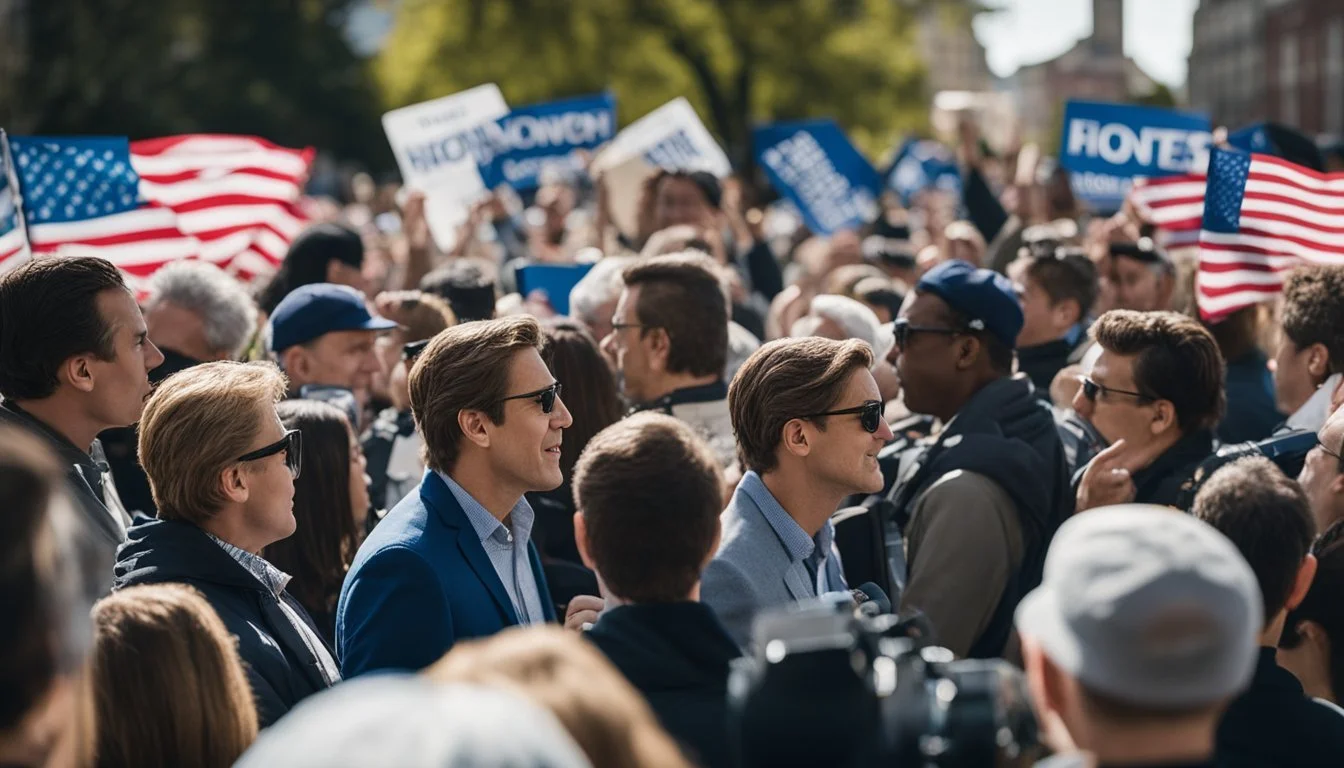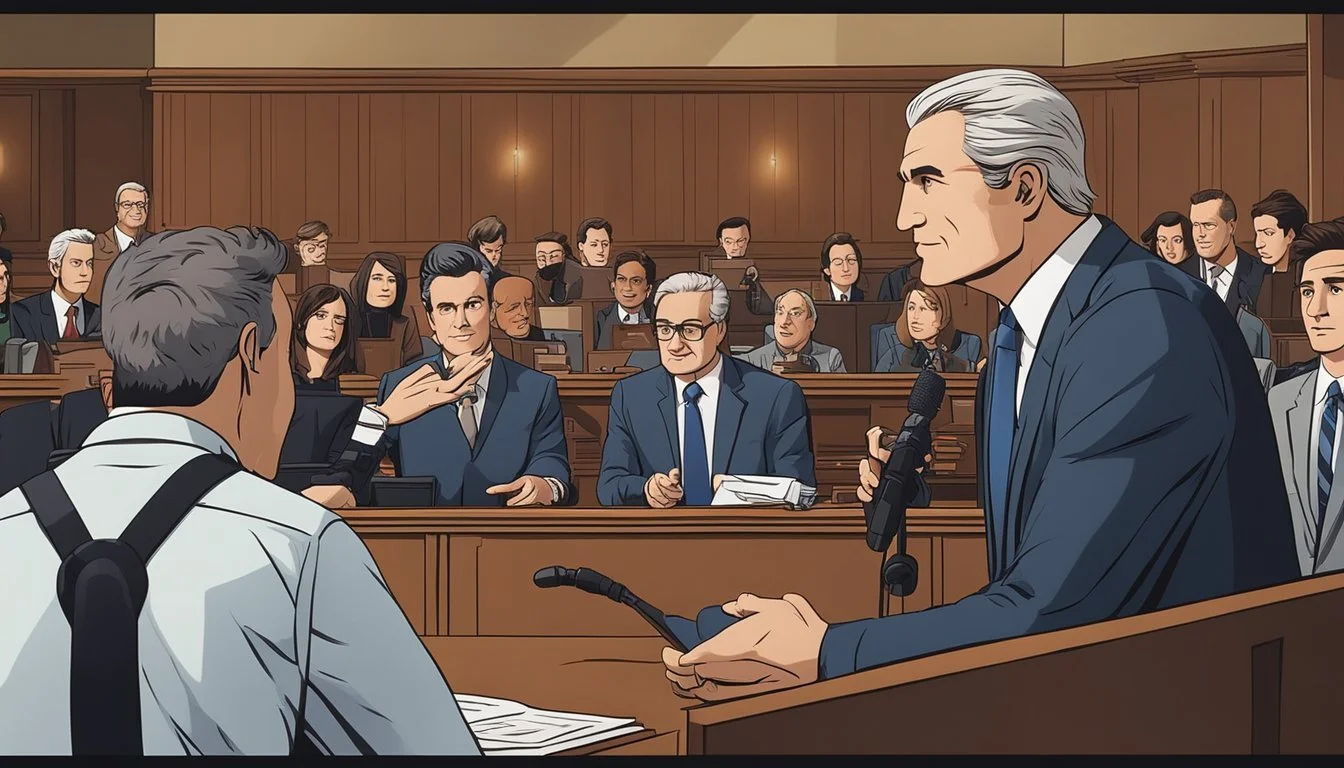Stolen Honor Documentary Sparks Controversy in 2004 Presidential Election
In the heated political climate of 2004, a controversial documentary called "Stolen Honor" emerged as a potent political weapon. Released during the presidential election season, this 45-minute film targeted Democratic candidate John Kerry by featuring interviews with Vietnam veterans who claimed Kerry's 1971 testimony about war crimes had worsened their treatment as prisoners of war. The documentary ignited fierce debate about the use of media to influence voters and the blurring lines between journalism and political propaganda.
"Stolen Honor" exemplified how documentaries can be wielded as tools for political persuasion, especially in high-stakes elections. Its release just weeks before Election Day was strategically timed to sway public opinion against Kerry. The film's creators framed it as revealing hidden truths, while critics argued it was a calculated smear campaign masquerading as objective reporting.
The controversy surrounding "Stolen Honor" highlighted the growing role of partisan media in shaping electoral narratives. It raised important questions about journalistic ethics, the responsibility of broadcasters, and voters' ability to discern fact from politically motivated fiction. The film's impact extended beyond the 2004 election, foreshadowing the increasingly polarized and contentious information landscape of future campaigns.
Historical Context of 'Stolen Honor'
'Stolen Honor' emerged as a controversial documentary during the 2004 U.S. presidential election. It aimed to influence voters by criticizing Democratic candidate John Kerry's Vietnam War record and anti-war activism.
Premise and Purpose
The 45-minute film featured interviews with American veterans who were prisoners of war in North Vietnam. These veterans claimed their treatment worsened due to Kerry's 1971 testimony before the Senate Foreign Relations Committee. The documentary's creators sought to undermine Kerry's military credentials and portray him as unfit for the presidency.
'Stolen Honor' was produced by Carlton Sherwood, a Vietnam veteran and former journalist. It was funded by Pennsylvania veterans and released in September 2004, just weeks before the election.
Public Reception and Political Impact
The documentary sparked intense debate and legal challenges. Some viewed it as a legitimate critique of Kerry's record, while others saw it as a politically motivated smear campaign.
Sinclair Broadcast Group initially planned to air the film on its 62 television stations before the election. This decision faced strong opposition from Democrats and media watchdogs, who argued it would violate equal-time rules.
Under pressure, Sinclair scaled back its plans and instead aired a balanced news program that included excerpts from 'Stolen Honor'. The controversy impacted Sinclair's stock price and raised questions about media bias and campaign finance laws.
'Stolen Honor' ultimately had limited mainstream distribution but circulated widely online and through conservative networks. Its impact on the election outcome remains debated by political analysts.
The Role of Documentaries in Political Campaigns
Documentaries have become powerful tools in shaping political narratives and influencing voter perceptions. They provide a visual medium to convey complex issues and personal stories that can sway public opinion. Campaign strategists increasingly recognize their potential to reach and mobilize voters.
Influencing Public Opinion
Political documentaries aim to sway voters by presenting carefully curated information and perspectives. Films like "The War Room" (1993) offered unprecedented behind-the-scenes access to Bill Clinton's 1992 campaign. More recently, documentaries have tackled issues of election integrity and misinformation.
Frontline's 2022 investigation examined how claims of widespread voter fraud gained traction in American politics. Such films can shape public discourse around key campaign issues. They may reinforce existing beliefs or challenge voters to reconsider their positions on candidates and policies.
The Power of Visual Media
Visual storytelling allows documentaries to create emotional connections with viewers. Campaign strategists recognize this power to motivate voter turnout and shape perceptions of candidates like Joe Biden and Donald Trump.
"Our Brand Is Crisis" (2005) revealed how U.S. consultants used documentary-style ads in Bolivia's 2002 election. This underscores how political operatives leverage visual media for maximum impact. Documentaries can humanize candidates, highlight key issues, or expose alleged wrongdoing.
However, concerns exist about potential manipulation through selective editing and framing. As powerful tools of persuasion, political documentaries require critical viewing to discern fact from spin.
Analyzing 'Stolen Honor' Within the Political Context
'Stolen Honor' emerged as a controversial political documentary during the 2004 U.S. presidential election. The film's impact on public perception and political discourse highlighted the power of media in shaping voter opinions.
Narrative Techniques and Rhetoric
The documentary utilized emotional appeals and personal testimonies from Vietnam veterans to criticize John Kerry's anti-war activism. It featured interviews with former prisoners of war who claimed Kerry's 1971 Senate testimony prolonged their captivity and mistreatment.
The film's structure emphasized firsthand accounts, creating a sense of authenticity. Dramatic music and imagery reinforced its emotional impact. Critics argued the narrative oversimplified complex historical events.
'Stolen Honor' employed repetition of key phrases and selective use of archival footage to reinforce its message. This technique aimed to create a cohesive narrative linking Kerry's past actions to questions about his fitness for office.
Fact vs Fiction
Fact-checkers scrutinized 'Stolen Honor' for accuracy, uncovering several disputed claims. The film's assertions about increased prisoner abuse lacked substantial documentary evidence.
Some interviewees' recollections conflicted with historical records. Critics argued the documentary cherry-picked information to support its thesis.
The film's producers defended their work, citing veteran testimonies as primary evidence. However, other Vietnam veterans, including some former POWs, disputed the film's characterization of Kerry's impact on their captivity.
'Stolen Honor' blurred lines between documented facts and personal interpretations of events. This mix of verifiable information and contested claims fueled debates about the documentary's credibility as a source of voter information.
Election Integrity and The Impact of Media on Perception
The 2020 U.S. election sparked intense debates about electoral integrity and the media's influence on public perception. Allegations of fraud and the media's role in shaping narratives became central issues in the aftermath.
Allegations of Election and Voter Fraud
Claims of widespread voter fraud emerged following the 2020 election. Several lawsuits were filed in key battleground states like Michigan and Pennsylvania, challenging the validity of results.
Despite these allegations, multiple audits and recounts found no evidence of significant fraud that could have altered the outcome. Courts dismissed the majority of lawsuits due to lack of evidence.
Some theories circulated about manipulated voting machines and illegal ballots. However, election officials and cybersecurity experts repeatedly confirmed the security and accuracy of the voting systems.
Media's Role in Shaping Electoral Narratives
News outlets played a crucial part in how the public perceived the 2020 election and its aftermath. Some media sources amplified fraud claims, while others focused on debunking misinformation.
This polarized coverage contributed to a divided public opinion on election integrity. A 2021 NPR survey found that 64% of Americans believed democracy was "in crisis."
Social media platforms faced scrutiny for their role in spreading election-related misinformation. In response, many implemented fact-checking measures and content moderation policies.
The media's approach to covering election fraud allegations evolved. Early reporting often presented claims without immediate verification, but later shifted towards more rigorous fact-checking.
Case Studies: Voter and Election Fraud Claims
Allegations of voter and election fraud emerged as a contentious issue in recent U.S. elections. These claims sparked legal challenges and investigations across multiple states.
Examining Specific Incidents and Allegations
In Wisconsin, questions arose about ballot drop boxes and absentee voting procedures. Critics claimed these practices increased the risk of fraud. However, state officials maintained that safeguards were in place to protect election integrity.
Arizona's Maricopa County became a focal point for fraud allegations. Some asserted that voting machines were compromised or ballots were improperly handled. A Republican-led audit found no evidence of widespread fraud.
The Antrim Report in Michigan initially showed incorrect vote tallies due to human error. This was quickly corrected, but the incident fueled broader fraud claims.
Judicial Responses to Fraud Claims
Courts across the country reviewed numerous lawsuits alleging election fraud. Judges, including many appointed by Republican presidents, dismissed the vast majority of these cases.
In Pennsylvania, a federal judge rejected a lawsuit seeking to invalidate millions of votes. The ruling cited a lack of evidence to support fraud claims.
Georgia saw multiple legal challenges. Courts consistently found no merit in allegations of widespread fraud or voting irregularities.
A Wisconsin Supreme Court case examined claims about ballot drop boxes. The court's decision clarified rules for future elections but did not find evidence of fraud in 2020.
The Legal Battle Over The 2020 Election Results
The aftermath of the 2020 U.S. presidential election saw an unprecedented wave of legal challenges questioning the integrity of the results. These efforts spanned multiple states and reached the highest levels of the judicial system.
State and Supreme Court Involvements
State courts across the country faced a barrage of lawsuits filed by Republican officials and the Trump campaign. In Pennsylvania, the state Supreme Court rejected a case seeking to invalidate mail-in ballots. Georgia's Supreme Court dismissed attempts to overturn election results, citing lack of standing and evidence.
The U.S. Supreme Court declined to hear several election-related cases. In December 2020, the Court rejected a lawsuit filed by Texas seeking to invalidate results in four battleground states. This decision effectively ended legal avenues to challenge the election outcome at the federal level.
Overview of Lawsuits and Judicial Outcomes
Over 60 lawsuits were filed in various states contesting the 2020 election results. The vast majority were dismissed due to lack of evidence or legal standing. In Michigan, a federal judge imposed sanctions on lawyers who brought what she deemed frivolous election fraud claims.
Key outcomes:
Wisconsin: State Supreme Court rejected lawsuit to throw out 221,000 ballots
Arizona: Multiple cases dismissed for insufficient evidence
Nevada: State Supreme Court unanimously rejected appeal to overturn results
Courts consistently found no credible evidence of widespread fraud that could have altered the election outcome. These legal battles highlighted the resilience of American democratic institutions in the face of unprecedented challenges to election integrity.
Dissecting the Narratives of 'Stolen Election'
The 'stolen election' narrative stemmed from unsubstantiated claims of widespread fraud in the 2020 U.S. presidential election. These allegations gained traction among certain political groups despite a lack of credible evidence.
The Big Lie and Its Perpetuators
A group working from South Carolina played a key role in spreading misinformation about the November 2020 election. Their false claims became widely accepted by many Republican voters. Reports suggest that two-thirds of Republican voters still believe the election was stolen.
Fox News contributed to this narrative for over two months after the election. The network repeatedly told viewers the election had been stolen or could have been stolen. This messaging reinforced doubts about the legitimacy of the results among its audience.
Debunking Discredited Theories
Claims of intentional election fraud in Dominion voting machines were central to the stolen election theory. However, investigations found no evidence to support these allegations. Election security experts and officials repeatedly confirmed the integrity of the voting systems.
Numerous lawsuits challenging the election results were dismissed due to lack of evidence. Recounts and audits in multiple states reaffirmed the original vote tallies. Despite these facts, the 'Big Lie' persists among a significant portion of the electorate.
Experts warn that continued belief in discredited election fraud theories poses risks to future elections. Election officials have implemented additional security measures to bolster public confidence in voting systems.
Socio-Political Consequences of Disinformation
Disinformation campaigns can profoundly shape public opinion and political landscapes. They erode trust in institutions, fuel polarization, and manipulate voter behavior through targeted messaging.
Impact on Voter Sentiment and Behavior
Disinformation spreads rapidly on social media platforms, reaching millions of users within hours. False narratives about candidates or policies can sway undecided voters and reinforce existing biases.
A study found that exposure to political disinformation decreased trust in traditional media sources by 12%. This erosion of trust makes voters more susceptible to conspiracy theories and fringe ideologies.
Coordinated disinformation efforts often target specific demographic groups with tailored messaging. For example, false claims about voting machine vulnerabilities suppressed turnout in some minority communities in recent elections.
Fact-checking initiatives struggle to keep pace with the volume of misleading content. By the time a false claim is debunked, it may have already shaped public perception.
Implications for Future Elections
The proliferation of AI-generated content poses new challenges for identifying and combating disinformation. Deepfake videos and synthetic text can create highly convincing false narratives.
Election officials face increasing pressure to secure voting systems against both real and perceived threats. Unfounded claims of election fraud have led to costly audits and legal challenges.
Some voters report feeling overwhelmed by conflicting information, leading to political apathy or disengagement. A survey found 28% of respondents were less likely to vote due to concerns about election integrity.
Lawmakers are grappling with how to regulate disinformation without infringing on free speech. Proposed solutions include enhanced digital literacy programs and greater transparency in political advertising.
The Road Ahead: Ensuring Electoral Transparency and Trust
Electoral integrity relies on transparency and public trust. Key efforts focus on reforming processes and educating voters to strengthen democratic participation.
Reforms and Regulations
Election officials are implementing new security measures to protect voting systems. Paper ballot backups provide a verifiable record of votes cast. Risk-limiting audits allow officials to detect irregularities.
Stricter regulations now govern campaign finance and political advertising. Social media platforms must clearly label political ads and disclose funding sources.
Some states have expanded early voting and mail-in ballot access. This aims to increase voter turnout and reduce long lines on Election Day.
Bipartisan election observation helps ensure fair processes. Both major parties can now station trained observers at polling places and ballot-counting centers.
Educational Efforts and Collaborative Reporting
Civic education programs teach students about the electoral process. These initiatives explain voting procedures, constitutional rights, and media literacy.
Election officials partner with community organizations to combat misinformation. They provide factual updates through multiple channels to reach diverse audiences.
News outlets are forming consortiums to verify results collaboratively. This approach increases accuracy and builds public confidence in reported outcomes.
Interactive online tools allow voters to track their ballots. Citizens can confirm their registration status and find polling locations easily.
Public information campaigns clarify voter ID requirements. They also explain security features that protect against fraud while maintaining ballot access.







